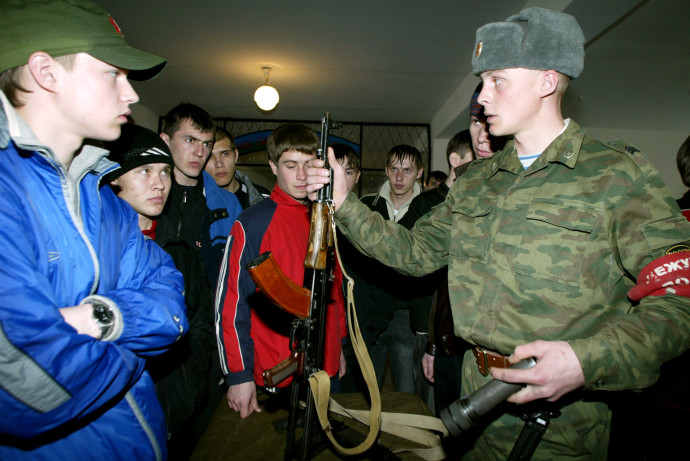Russia announced that compulsory military training, the same as during the Soviet era, will be introduced in Russia's high school curriculums starting in 2023, Russian Education Minister Sergey Kravtsov said on Wednesday, according to TASS.
"It will be introduced in schools starting from the next academic year. Now it is being drafted and after January 1, it will begin to be tested," Kravtsov said. According to TASS, high school students will be put through around 35 hours of training, although an official timeframe is yet to be approved by the Russian Duma.
"It will be introduced in schools starting from the next academic year. Now it is being drafted and after January 1, it will begin to be tested,"
Russian Education Minister Sergey Kravtsov
Teachers will start undergoing training which is expected to be completed by January 1, 2023, according to Kravtsov. It will initially be launched as a pilot program before getting final approval.
The Russian Education Ministry is currently working on the program, which will be included in the existing mandatory course called Fundamentals of Life Safety (FLS).
Teachers, meanwhile, said that the Russian school curriculum is already overloaded with numerous other new subjects, raising concerns about how the program will be implemented, according to state-affiliated news outlet Izvestia.

New additions to Russia's school curriculum raise concerns
Russian schools have already added the invasion of Ukraine to the 10th and 11th graders’ history curriculum starting this academic year.
Younger students are also required to attend weekly patriotic classes called “Important Conversations.” Parents, teachers and lawyers expressed concern over what they criticize as state efforts to rally support for the war among children, according to The Moscow Times.
Russia is also planning to overhaul humanities education with an ideological course on the “fundamentals and principles of Russian statehood” in universities by March 2023, according to a report published by Kommersant.
Russian politicians show support for military training for teens
Interest in the policy resurfaced in light of the combat performance of Russian troops in Ukraine, according to Izvestia.
"Even many volunteers do not have the necessary experience to participate in hostilities," said Sergei Mironov, the head of pro-Kremlin political party A Just Russia For Truth, per Izvestia. "With the beginning of the special military operation, this issue became especially acute."
Mironov has secured the backing of Deputy Defense Minister Valery Gerasimov, who said his ministry would support legislative proposals to reinstate the high school basic training, according to Izvestia.
Gerasimov suggested that schools should allocate at least 140 hours of basic training for 10th and 11th graders, Izvestia reported, citing his letter endorsing Mironov’s proposal.
Other Russian politicians have already shown public support for the program. "If you want peace, prepare for war. When we were engaged in military training at school, it worked only as a plus," said Adalbi Shkhagoshev, the deputy chairman of the United Russia party, according to Izvestia.
Russia retired the so-called “initial military training” program which taught teens to respond to a nuclear or chemical attack, provide first aid and handle firearms in 1993, although several attempts to revive the program have been made throughout the years.
